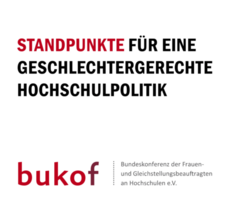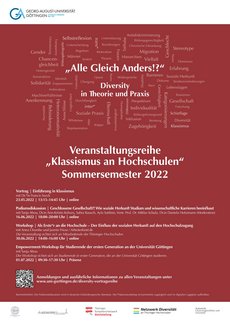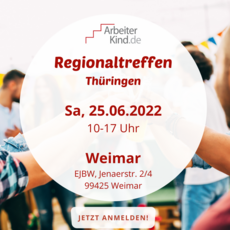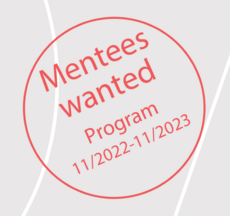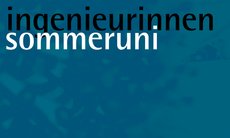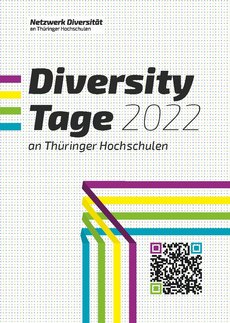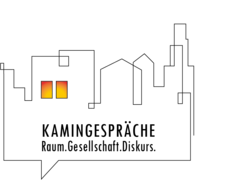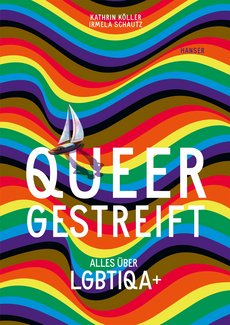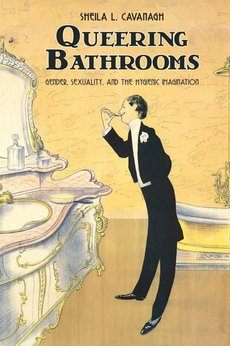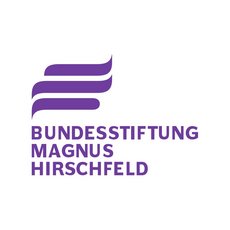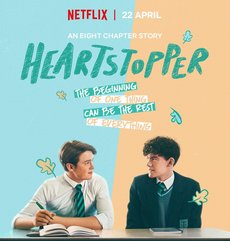
Für die deutschsprachige Version des Newsletters, bitte hier klicken.
Dear readers:
On June 1, the annually celebrated »Pride Month« began, which will culminate in the Christopher Street Day (CSD) rally on Weimar’s Theaterplatz on June 25, 2022. For the first time, the Bauhaus-Universität Weimar is also taking part in the actions with its own »Campus Pride Week«. In cooperation with the Queer Department of the StuKo, »QueerYMR«, the student initiatives »QueerLit« and »Campus.Garten«, and students from the course »Gender readings in texts, films and spaces« by Dr. Simon Frisch (Department Film and Media Studies), we have put together a one-week program. At the start of the week, the »Intersex-Inclusive Progress Pride Flag« will be hoisted on the balcony of the university's main building as a visible sign that homophobia, biphobia, trans*- or inter*phobia have no place at the university.
In this issue of our newsletter, we provide information about the planned events as well as a range of thematically related background information, including literature, film and podcast tips.
As part of the diversity audit »Diversität gestalten«, the second university-wide workshop took place on May 12th. Dr. Miriam Benteler, the Diversity Officer, gave a short review of what the various audit working groups had discussed and worked out in the last year with regards to personnel development, teaching, advice on discrimination, and the awarding of scholarships. She also gave an overview of the measures that have already been implemented: »Diversity Guides« are currently being trained. They will act as low-threshold contact persons for other students and initiate actions and events on the topics of diversity and protection against discrimination at the university. The newly-developed »Guidelines for Diversity-Sensitive Awarding of Scholarships« formed the basis for this year’s awarding of scholarships. The guidelines are subject to continuous further development. The redesigned counseling websites as well as the new explanatory film about the university's counseling services serve to bundle and highlight the many available support services for cases of discrimination, making them easier to find.
In working sessions, participants of the audit workshop developed »future visions of diversity« for our university. These visions will be advanced further in the upcoming final year of the auditing process and then incorporated into the university's diversity strategy. Interested students and staff can get involved in the audit working groups at any time.
At the June meeting of the university senate, Tina Meinhardt was elected by the senators for a second term of three years at the suggestion of the Equal Opportunity Advisory Board. Besides updating the Equal Opportunity Plan, the focus of her second term in office will be the expansion of qualitative equality work at the university. Above all, this includes strengthening the decentralized gender equality work at the university, so that all members of the university can become knowledgeable on gender-issues and forms of discrimination to be able to act in gender-sensitive, anti-discriminatory and responsible ways. In addition, the complaint structures for dealing with cases of discrimination are to be further expanded. Thus, a complaints office will be set up. Moreover, the Equal Opportunity Office aims to develop measures that will protect people of all genders more than before against discrimination. We will report on these topics in more detail in the next newsletter.
We hope you’ll enjoy the newest edition of our newsletter!
Best regards,
Tina Meinhardt
Equal Opportunity Officer of the Bauhaus-Universität Weimar
Dr. Miriam Benteler
Diversity Officer of the Bauhaus-Universität Weimar
Equal Opportunity Advisor
Dr. Michael Wallner
Equal Opportunity and Diversity Advisor
Franziska Fritsch
Equal Opportunity Office Administration
INTRODUCTION
From 1 to 24 June 2022, Jasmin Rogge is completing a three-week internship at the Equal Opportunity Office of the Bauhaus-Universität Weimar. Here she introduces herself in her own words:
»Hello, I’m Jasmin and I’m studying Gender Studies and General Linguistics in my last semester at the Georg-August University in Göttingen.
As part of my Bachelor’s degree programme, I’m required to do an internship in a professional field relevant to my studies. For this reason, I chose an internship at the Equal Opportunity Office of the Bauhaus-Universität Weimar. I chose the Bauhaus-Universität because I specifically wanted to see and experience work promoting equality at a university.
From the internship, I expect to can gain valuable practical experience of which I can take advantage in my career going forward, and I hope to be able to gain an insight into equality-focused work.«
CURRENT ISSUES
From Monday, June 20, to Sunday, June 26, 2022, the first »Campus Pride Week« will take place at the Bauhaus-Universität Weimar on the occasion of the »Christopher Street Day (CSD) Weimar«. For one week, sexual and gender diversity will be celebrated on campus, and queer art and culture will be put at the center of campus life. The diverse program invites guests to deal with the complex lived realities of queer people, offers opportunities for exchange and encounters, and provides spaces for networking and strengthening the queer communities.
All students and employees of the Bauhaus-Universität Weimar are cordially invited to celebrate queer diversity, art and culture together on campus. Together we want to show that homophobia, biphobia, trans*- or inter*phobia have no place at our university!
This year's program was designed by members of the StuKo department »QueerYMR«, the student initiatives »QueerLit« and »Campus.Garten«, students from the course »Gender readings in texts, films and spaces« by Dr. Simon Frisch (Department Film and Media Studies) as well as the Equal Opportunity Office and the Diversity Department of the Bauhaus University Weimar.
The event program with all information and dates can be found here.
With the current central Equal Opportunity Plan of the Bauhaus-Universität Weimar, the faculties are obligated to prepare their own Equal Opportunity Plans, tailored to their respective needs. In the Faculty Board meeting of May 2022, decentralised Equal Opportunity Plans for the Faculty of Architecture and Urbanism and the Faculty of Civil Engineering were approved for the first time.
The Equal Opportunity Plans for the Faculty of Civil Engineering were developed by working groups comprising representatives from all member groups, including faculty management. Based on statistical evaluation of student and employee numbers, the working groups initially identified various areas of activity before developing a catalogue of measures. The Plans will soon be published on the website of the Equal Opportunity Office and on the websites of the Faculties.
The »Gender Diversity working group« of the Netzwerk Diversität an Thüringer Hochschulen (»Diversity Network at Thuringian Universities«) — of which the Bauhaus-Universität Weimar is a member — has been intensively involved over the past year with the question of how gender diversity can be mapped in universities’ IT systems and how as formalised and low-threshold as possible a procedure for changing/adjusting gender and name entries for students (and employees) might look.
The »Empfehlungen zur Erfassung von Geschlechtervielfalt in der Hochschulverwaltung an Thüringer Hochschulen« (»Recommendations for Recording Gender Diversity in University Administration at Thuringian Universities«) developed by the working group were first adopted by the Netzwerk Diversität an Thüringer Hochschulen and subsequently by the Landeskonferenz der Gleichstellungsbeauftragten der Thüringer Hochschulen (LaKoG Thüringen; state conference of equal opportunity officers at Thuringian universities). The recommendations do not target a uniform solution throughout Thuringia, but are instead intended to promote and support the discussion at individual universities. Their implementation is »emphatically supported« by the Thüringer Landespräsidentenkonferenz (TLPK; Thuringian state presidents’ conference) and accompanied in an advisory capacity by the Diversity and Equal Opportunity Officers of the universities.
The flexible childcare service »Bauhäuschen« at the Bauhaus-Universität Weimar has been open regularly again since April 2022.
Registrations are now possible at the INFOtake of the Studierendenwerk Thüringen (Tel: +49(0)3641/5546850; e-mail: infotake-weimar@stw-thueringen.de). The teams are looking forward to seeing all familiar and new faces.
Further information can be found here.
As part of a doctoral project, the KomRex (Center for Right-Wing Extremism Research, Democracy Education and Social Integration) of the Friedrich Schiller University Jena is conducting surveys on the social climate at Thuringian universities. The goal of the surveys is to gain insights into the social interactions of students with a special focus on experienced discrimination.
The data will be used for scientific purposes, and the results will also be made available to the participating universities. The data will be provided exclusively in anonymized form; therefore, identification of individuals will not be possible.
All (doctoral) students of the Bauhaus-Universität Weimar are cordially invited to participate in the study. There will be a prize draw among the participants.
Here you can find more information about the study and how to participate.
At the beginning of June, the Bundeskonferenz der Frauen- und Gleichstellungsbeauftragten an Hochschulen (bukof; federal conference of women’s affairs and equal opportunity officers at universities) published an updated and expanded new edition of its »Grundsatzpapier zu Sexualisierter Diskriminierung und Gewalt an Hochschulen« (»Policy Paper on Sexual Discrimination and Sexual Violence at Universities«).
»The bukof sees sexual discrimination and sexual violence as a particularly serious problem for students, doctoral candidates, post-doctoral candidates and trainees due to dependency relationships and disparities in status and hierarchy. Engaging in confrontation and/or lodging a complaint can result in considerable disadvantages for these groups in terms of their supervision situation and the further course of their qualification process. Moreover, additional barriers exist in the university context due to precarious employment conditions; to the fact that there are few avoidance possibilities in small administrative, teaching or research units; to a learning and working culture that tends to blur the boundaries of private and professional life; and to the temporary residency status of foreign students and scientists. [...] The bukof considers constant ›awareness raising‹ at universities to be necessary, as the topic of sexually inappropriate behaviour is often treated as taboo, played down and scandalised.« (Translated excerpt from the bukof policy paper).
The complete bukof policy paper (in German language) as well as further information on the topic of »sexual discrimination and sexual violence at universities« can be accessed here.
»The Wissenschaftsrat (WR) published its ›Recommendations for a Sustainable Study and Teaching Design‹ (»Empfehlungen für eine zukunftsfähige Ausgestaltung von Studium und Lehre«) on 2 May 2022. In these recommendations, the WR defines guidelines for the sustainable design of framework conditions for higher education in Germany. The recommendations are addressed to the federal government, the states, universities, funding organisations and the Accreditation Council. They are intended to be effective throughout the entire university system.
In its recommendations for a sustainable study and teaching design, the WR emphasises diversity and equal opportunity as core themes. Universities have a particular responsibility. The diverse challenges in studying and teaching are a joint task for all persons responsible.« (Translated excerpt from the bukof press-release of 12 May 2022)
For further bukof positions, see: »Standpunkte für eine geschlechtergerechte Hochschulpolitik«.
ANNOUNCEMENTS
The Equal Opportunity Office cordially invites all female and non-binary students and PhD candidates to the online workshop »Empowerment — Setting Boundaries & Saying ›No!‹« with Julia Lemmle on Saturday, July 6, 10 am to 4 pm. The workshop will be conducted in English (spoken language).
This workshop aims to encourage participants to (continue to) be socially and politically active and to stand up for their own values without exhausting themselves to the point of »burn-out«. Practical body-oriented exercises will give participants tools for dealing with offensive, aggressive or invasive forms of behaviour (both verbal and non-verbal). The workshop will also provide participants with opportunities for deep exchange, self-reflection and self-experience, inviting them to weave robust relationships and networks.
For more information, please see the full workshop description here.
To register, please use Stellenticket or send an e-mail to: miriam.benteler@uni-weimar.de
The opportunity to participate in higher education is still closely linked to home and upbringing. Depending on social background, great variation exists with regard to commencing studies as well as study conditions. The online-workshop »Als Erste*r an die Hochschule — Der Einfluss der sozialen Herkunft auf den Hochschulzugang« (»First-Generation Academics — The Influence of Social Background on Access to Higher Education«; 30 June 2022, 2 pm to 4 pm; in German) therefore aims to shed more light on the unique situation of first-generation academics. It is aimed particularly at staff of Thuringian universities.
Guided by of Anna Chombe (coordinator of ArbeiterKind.de Thuringia) and Jasmin Friese (coordinator of ArbeiterKind.de Saxony & Saxony-Anhalt), participants will reflect on their own educational histories. Furthermore, they will take a look at the challenges and the potentials of students from non-academic families and develop approaches to appropriate action for the university. The organisation ArbeiterKind.de will also be presented.
The workshop is part of the event series »›Alle gleich anders?!‹ — Diversität in Theorie und Praxis« (»›All Equally Different?!‹ — Diversity in Theory and Practice«) of the Georg-August University of Göttingen, which this year focuses on the topic of »classism at universities«. The workshop has been organised in cooperation with the Netzwerk Diversität an Thüringer Hochschulen.
On Saturday, 25 June 2022, from 10 am to 5 pm, ArbeiterKind.de Thüringen invites you to attend their regional meeting in Weimar.
ArbeiterKind.de encourages pupils from families without university experience to be the first in their family to study. The association furthermore offers first-generation academics various opportunities for exchange and networking, e.g. through workshops on the topics of studying, financing studies and everyday life at university.
In Thuringia, there are local groups in Weimar, Jena and Erfurt. The Thuringian regional office has been located at the Duale Hochschule Gera-Eisenach university since 2022. The monthly open meetings of the local groups are an excellent first point of contact for pupils, students and other interested parties seeking advice.
If you would like to get to know the members of the Thuringian local groups or exchange ideas and network with other first-generation academics, you can register for the regional meeting here.
In order to make visible the wide variety of gender and diversity topics at Thuringian universities and to promote young academics, the Thüringer Kompetenznetzwerk Gleichstellung (TKG; Thuringian competence network for equal opportunities) is offering the »Diversity Meets Science« Prize for Theses with Gender and Diversity Perspectives, which is endowed with €2,000.--. Funding is available for theses with a central reference to and integration of research regarding age, mental and physical abilities, ethnicity, gender, educational background, religion/ideology or sexual orientation.
Applications are invited from graduates of Thuringian universities whose final thesis (i.e. Bachelor’s, Master’s, Diplom, State Exam or Ph.D.) involved a gender/diversity perspective and was submitted within the past two years (i.e., after 1 August 2020).
The deadline for applications is 21 August 2022. Further information on the announcement and application can be found here.
Are you a female doctoral student or postdoctoral student at a Thuringian university? Are you currently in the planning phase of your individual career path? Are you interested in an exchange with an experienced professor? Are you motivated to network with colleagues in the same career phase from your and other universities and to develop your personal profile? — Then apply now to participate in the Rowena Morse Mentoring Program!
The interdisciplinary program supports female doctoral students in the final phase of their doctorate and postdocs in the orientation phase in planning their career path. During the 12-month program, mentees network with each other, attend workshops for further training and receive individual advice from experienced professors at Thuringian universities in group mentoring sessions.
Here you can find more information about the program and the application process. Application deadline is 14 August 2022.
From July to September 2022, the University of Bremen will host the »14. Ingenieurinnen-Sommeruni« (»14th Summer University for Women in Engineering«), an international summer study program for women in engineering. Female students of all subjects from universities, universities of applied sciences, universities of education and technical colleges are invited, along with all other interested women. Participants from Germany and abroad are welcome — the languages of instruction will be German and English.
From 25 July to 5 August, events will be held in a fee-free online format. From 1 to 14 September there will be in-person events in Bremen (for a participation fee). The program with all events can be accessed here.
DOCUMENTATION
The »Netzwerk Diversität an Thüringer Hochschulen« (»Network Diversity at Thuringian Universities«), of which the Bauhaus-Universität Weimar is a member, took part in the Germany-wide »Diversity Tage« (»Diversity Days«) for the first time this year. From 16 May to 3 June 2022, the network organised a series of events entitled »Diversity Tage 2022 an Thüringer Hochschulen« (»Diversity Days 2022 at Thuringian Universities«). The events on the topics of diversity and anti-discrimination at universities took place partly online and partly in-person at the universities in Thuringia.
In the events, experts provided information on impeded and denied access to university and academia and presented local and regional support and counseling services. Furthermore, they discussed how Thuringian universities can be made inclusive and diversity-friendly as common places of learning, research and work.
The Diversity Department of the Bauhaus-Universität Weimar was also represented in the program with a training offer: Coinciding with Global Accessibility Day 2022 on 19 May, an online workshop was held on the topic »Barrierefreie Hochschullehre? Behinderte und chronisch kranke Studierende in meiner Veranstaltung« (»Barrier-Free University Teaching? Disabled and Chronically Ill Students in My Course«). The workshop was led by Dipl. Päd. Ingo Binder and was aimed specifically at academic staff of Thuringian universities.
»Is science feminist or feminism a science?« — This is the question that the »Kamingespräche Weimar« (»Fireside Chats Weimar«) team posed during an open discussion round on 18 April 2022. After receiving input from representatives of the student initiative »QueerLit«, the audience was invited to exchange views and opinions on various questions in three groups. Christin Sirtl, the Deputy Equal Opportunity Officer, also participated in the debate.
There was a lively exchange about how curricula become »white«, which gaps/vacancies still need to be filled and how diversity in science and teaching could be achieved. Topics such as the use and implementation of gender-sensitive language and highlighting discriminatory structures at the university were also discussed.
Further information on the event can be found here.
DID YOU KNOW?
On Saturday, 25 June 2022, the »Christopher Street Day (CSD) Weimar« will take place for the 11th time. A demonstration march through the Weimar city centre is planned, followed by a street festival around Theaterplatz. The demonstration will see lesbian, gay, bisexual, trans*, inter* and queer (LGBTIQ*) people take to the streets to protest for equal rights, social and political participation as well as the social acceptance of sexual and gender diversity.
On the one hand, »Christopher Street Day« commemorates the »Stonewall Riots« on Christopher Street in New York 53 years ago, which are considered the catalyst for the US »Gay Rights« movement. The cause for these emancipatory uprisings was a raid by the New York police on the »Stonewall Inn« bar, which served as a meeting place for homosexual men, drag queens and cross-dressers as well as trans* people, homeless youths and sex workers. At the same time, the CSD demonstrations are also linked to more than 100 years of history of queer emancipation movements in Germany, which condemn(ed) the criminalisation, pathologisation and disparagement of sexual and gender minorities. The first demonstration for the rights of homosexual people in Germany took place 50 years ago — on 29 April 1972 — in Münster.
The complete program of the CSD Weimar can be found on the website, the Instagram page or the Facebook page of the CSD Weimar and in the event flyer linked here.
During this year’s »Campus Pride Week« from 20 to 26 June 2022, a banner with the so-called »Intersex-Inclusive Progress Pride flag« will be displayed on the central balcony of the Main Building.
»By hanging the Intersex-Inclusive Progress Pride flag, the Bauhaus-Universität Weimar is sending a visible signal that queer students and staff are welcome at the university and that discrimination based on sexual orientation or gender identity has no place here. We at the university are committed to dismantling the existing barriers, especially when it comes to trans/inter/non-binary students and staff«, explains Prof. Dr. Jutta Emes, President (interim) of the Bauhaus-Universität Weimar.
Would you like to learn more about the significance of the »Intersex-Inclusive Progress Pride flag«? Here you can find a short text on the history of the various »LGBTIQ* Pride« flags.
LITERATURE TIPS (PRINT)
»Bi, cis or non-binary? A book about love, identity and sex that promotes respect and openness — fully artistically designed and contemporarily illustrated.
No sooner have we blearily blinked in the light of the world for the first time than we are placed in a box: It’s a boy! Or: a girl! But why? And how do all those people who cannot identify with the gender on their birth certificate feel? How does a girl react when her best friend’s crush is not male, but female? This book educates about LGBTIQA+ and the people behind these letters. It deals with social, health and legal issues, allows the affected to have their say and introduces organisations committed to gender diversity. An activistic and empowering book, respectful, contemporarily and artistically illustrated and designed.« (Translation of publisher’s announcement)
Click here to access the publisher’s website for the book Queergestreift — Alles über LGBTIQA+. You can download a preview in PDF format here.
»The intersection of public washrooms and gender has become increasingly politicized in recent years: queer and trans folk have been harassed for allegedly using the 'wrong' washroom, while widespread campaigns have advocated for more gender-neutral facilities. In Queering Bathrooms, Sheila L. Cavanagh explores how public toilets demarcate the masculine and the feminine and condition ideas of gender and sexuality.
Based on 100 interviews with GLBT and/or intersex people in major North American cities, Cavanagh delves into the ways that queer and trans communities challenge the rigid gendering and heteronormative composition of public washrooms. Incorporating theories from queer studies, trans studies, psychoanalysis, and the work of Michel Foucault, Cavanagh argues that the cultural politics of excretion is intimately related to the regulation of gender and sexuality. Public toilets house the illicit and act as repositories for the social unconscious. Also offering suggestions for imagining a more inclusive public washroom, Queering Bathrooms asserts that although toilets are not typically considered within traditional scholarly bounds, they form a crucial part of our modern understanding of sex and gender.« (Publisher’s description).
Here you can find a short (7:20 mins) talk by Professor Sheila L. Cavanagh.
LITERATURE TIPS (ONLINE)
On the 77th anniversary of the liberation of the Ravensbrück concentration camp, after much deliberation, the lesbian women and girls imprisoned and murdered there were officially commemorated for the first time on 1 May 2022. In autumn 2022, a permanent memorial sign for lesbian prisoners will finally be installed at the Ravensbrück Memorial Site. One of the foundations for this decision was an expert opinion provided by Prof. Dr. Martin Lücke of Freie Universität Berlin. This expert opinion was commissioned by the Stiftung Brandenburgische Gedenkstätten (Brandenburg Memorials Foundation) and the Bundesstiftung Magnus Hirschfeld (Federal Foundation Magnus Hirschfield). Prof. Lücke has now published an essay on the basis of this expert opinion in the Zeitschrift für Geschichtswissenschaft (publisher: Metropol Verlag). The German-language article is titled »Die Verfolgung lesbischer Frauen im Nationalsozialismus« (»The Persecution of Lesbian Women Under National Socialism«). It is available to download for free on the website of the Bundesstiftung Magnus Hirschfeld.
TV GUIDE
At the end of April, the first season of the British TV series Heartstopper debuted on Netflix. The series focuses on teenagers Charlie Spring and Nick Nelson, played by Joe Locke and Kit Connor. Although Charlie and Nick go to the same school, they only become acquainted when they are placed next to each other in mixed-year classes. 15-year-old Charlie, who is already »out« as gay, quickly falls for Nick, who is one year older. But Nick, the star rugby player at Truham Grammar School for Boys, seems more interested in girls. For those who would like to know whether there is more to Charlie and Nick than »just« a friendship, Heartstopper is highly recommended.
Heartstopper is based on the graphic novel series of the same name by author Alice Oseman, who also wrote the screenplay for the series. Along with shows such as Love, Victor, Sex Education and Euphoria, Heartstopper is one of the very few TV series to deal with non-heterosexual relationships among teenagers. Despite the youthful subject matter, the series is not only interesting for young audiences. Darker themes such as peer pressure, bullying, sexual violence and queerphobia are also probed. Nevertheless, it is above all the many small, magical moments that remain in the memory, often accompanied by comic-style illustrations. And »just by the way«, Heartstopper also shows how vital a supportive environment of friends, teachers and parents can be for queer youths discovering their identity.
Under the title »rbb QUEER« and »BR QUEER«, rbb Fernsehen and Bayerischer Rundfunk (BR) present a film series with a focus on queer themes and protagonists:
»From 2 July to 13 August 2022, a total of eleven queer films will be shown on Saturdays on rbb Fernsehen (at 11:30 pm) and Thursdays on BR Fernsehen (from 11:15 pm), six of which will be free-TV premieres: great cinema with touching coming-of-age films, moving (substitute) family stories and multi-layered dramas exploring queer lives. Most of the films can be seen in the ARD media library (ARD Mediathek) after their broadcast.« (Translation of announcement by Bayerischer Rundfunk/BR)
A complete overview of the queer summer cinema program can be found here.
PODCAST TIPS
»BIPoC and queer perspectives still find little space in public discourse. BBQ is the podcast that changes this. Every month, hosts Zuher Jazmati and Dominik Djialeu choose a topic that concerns them or is currently of global interest. Whether covering the queer movement in the East, BIPoCs in politics or the glamorous world of ballroom culture — the guests sharing their expertise are always people affected [by the issues we discuss], activists, and people from the scene. What makes BBQ so unique? The non-white and moreover queer perspective on socially-relevant topics.« (Translation of podcasters’ description)
You can find the »BBQ« podcast on many major streaming platforms and via Instagram.
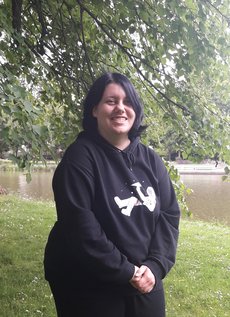
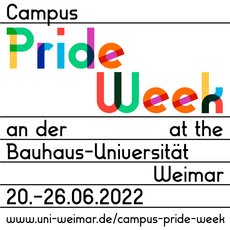
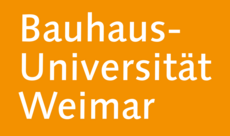
![[Translate to English:] Das Logo zeigt die Worte »Netzwerk Diversität an Thüringer Hochschulen« (schwarz auf weiß). Daneben sind vier übereinander gelagerte horizontale Streifen zu sehen. Sie haben folgende Farben (von oben nach unten): violett, gelb, grün und blau.](https://www.uni-weimar.de/fileadmin/_processed_/b/5/csm_netzwerk-diversita__t-schriftzug-farbig%404x-100_18abab6fe0.jpg)



